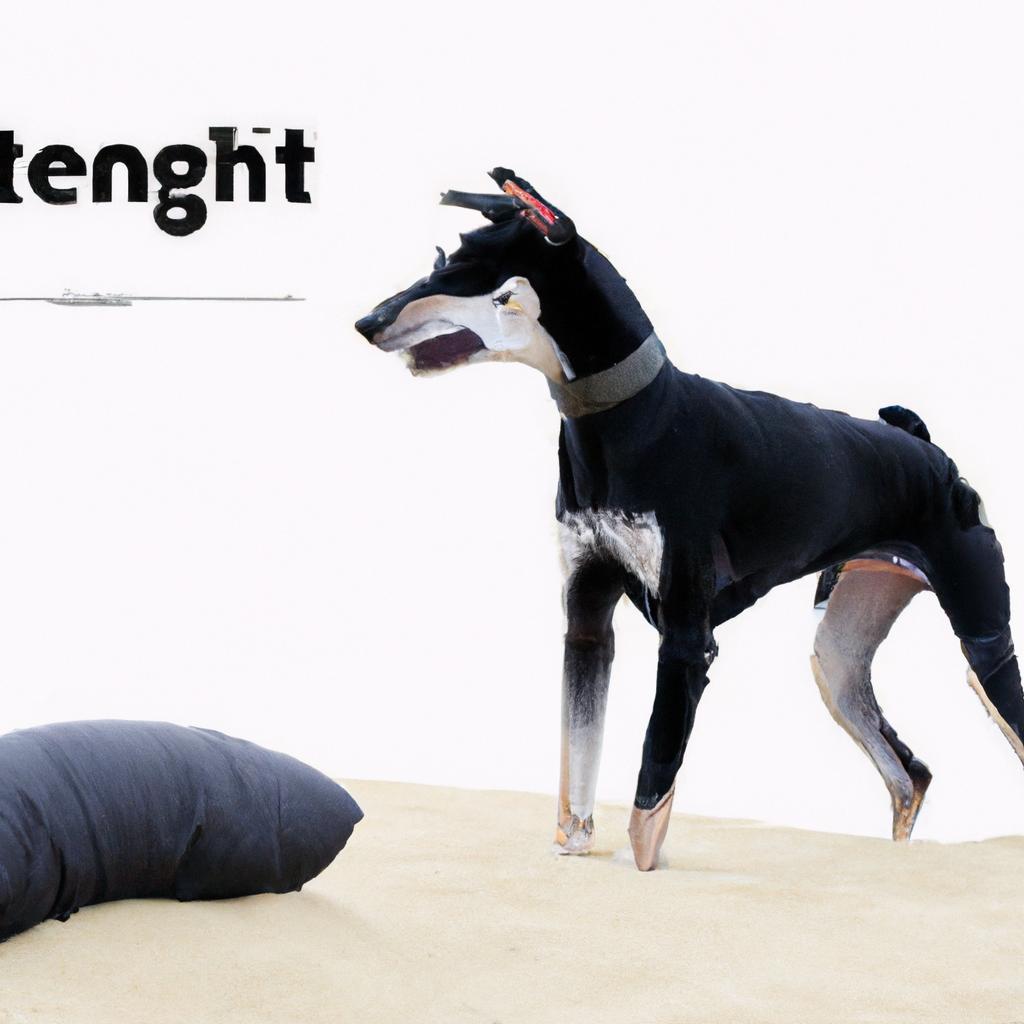In a cozy suburban neighborhood, the Johnson family faced a dilemma: which dog would be the perfect addition to their home? After much research, they discovered the Labrador Retriever. Known for their friendly nature and adaptability, Labs are gentle with children and thrive in family settings. They require moderate exercise, making them ideal for busy households. As the Johnsons welcomed their new furry friend, laughter filled their home, proving that the right dog can transform a house into a loving home. Choose wisely; a Labrador could be your family’s best companion!
Contents
- Understanding Your Lifestyle and Home Environment
- Evaluating Temperament and Trainability in Dog Breeds
- Health Considerations and Lifespan of Popular House Pets
- Making the Right Choice: Recommendations for Ideal Family Dogs
- Q&A
Understanding Your Lifestyle and Home Environment
When considering the ideal canine companion, it’s essential to evaluate your daily routine and living space. Different breeds have varying energy levels, temperaments, and care requirements, which can significantly impact your experience as a pet owner. For instance, if you lead a busy lifestyle with long work hours, a dog that thrives on companionship and requires minimal exercise may be more suitable. Breeds like the **French Bulldog** or **Shih Tzu** are known for their adaptability and lower exercise needs, making them perfect for apartment living.
Your home environment also plays a crucial role in determining the best dog for you. If you have a spacious backyard, you might consider a more active breed that enjoys outdoor playtime, such as a **Labrador Retriever** or **Golden Retriever**. These breeds not only require regular exercise but also thrive on social interaction and family activities. On the other hand, if your living situation is more compact, smaller breeds like the **Pug** or **Cavalier King Charles Spaniel** can provide companionship without needing extensive space to roam.
Another factor to consider is the presence of children or other pets in your home. Some breeds are known for their gentle nature and compatibility with kids, such as the **Beagle** or **Bichon Frise**. These dogs are typically patient and playful, making them excellent choices for families. Conversely, if you have existing pets, it’s vital to choose a breed that can coexist peacefully, as some dogs have strong prey drives or territorial instincts that may lead to conflicts.
Lastly, think about your long-term commitment to pet care. Dogs require time, attention, and resources, including grooming, training, and regular veterinary visits. Breeds like the **Shetland Sheepdog** or **Border Collie** may demand more training and mental stimulation, while others, such as the **Chihuahua** or **Boston Terrier**, may be easier to manage for first-time dog owners. will help you make an informed decision, ensuring that both you and your future pet can enjoy a harmonious and fulfilling relationship.
Evaluating Temperament and Trainability in Dog Breeds
When considering a dog as a house pet, understanding the temperament and trainability of various breeds is crucial. Different breeds exhibit distinct personality traits that can significantly influence their compatibility with family life. For instance, breeds like the Labrador Retriever and Golden Retriever are renowned for their friendly and sociable nature, making them excellent companions for families with children. In contrast, breeds such as the Shiba Inu may display a more independent temperament, which could pose challenges in a household setting.
Trainability is another essential factor to evaluate. Some breeds, like the Border Collie and Poodle, are highly intelligent and eager to please, often excelling in obedience training and agility tasks. Their quick learning ability can lead to a well-behaved pet that adapts seamlessly to household routines. On the other hand, breeds like the Bulldog may require more patience and consistent training efforts due to their stubbornness. Understanding these differences can help potential dog owners choose a breed that aligns with their training capabilities and lifestyle.
Additionally, the energy levels of different breeds play a significant role in their suitability as house pets. High-energy breeds, such as the Australian Shepherd, require ample exercise and mental stimulation to prevent boredom and destructive behavior. Conversely, breeds like the Basset Hound or Cavalier King Charles Spaniel are generally more laid-back and may thrive in a quieter home environment. Assessing your own activity level and lifestyle can guide you in selecting a breed that matches your expectations for daily engagement and companionship.
Lastly, consider the breed’s adaptability to various living situations. Some dogs, like the French Bulldog, are well-suited for apartment living due to their smaller size and lower exercise requirements. In contrast, larger breeds, such as the German Shepherd, may need more space and a secure yard to roam. Evaluating the living conditions you can provide will ensure that you choose a breed that can thrive in your home, leading to a harmonious relationship between you and your new furry friend.
Health Considerations and Lifespan of Popular House Pets
When considering a dog as a house pet, it’s essential to understand the health considerations that can impact their quality of life and longevity. Different breeds come with varying predispositions to health issues, which can affect not only their lifespan but also the overall experience of pet ownership. For instance, larger breeds like Great Danes and Saint Bernards often face challenges such as hip dysplasia and heart problems, which can shorten their lifespan. In contrast, smaller breeds like Dachshunds and Chihuahuas may live longer but can be prone to dental issues and obesity if not properly managed.
Regular veterinary check-ups are crucial for maintaining your pet’s health. Vaccinations, parasite control, and dental care are just a few aspects that contribute to a dog’s well-being. Additionally, a balanced diet tailored to the specific needs of your chosen breed can prevent obesity and other health complications. **Consider the following dietary factors** when selecting a dog:
- Age-appropriate nutrition
- Breed-specific dietary needs
- Weight management strategies
Exercise is another vital component of a dog’s health and longevity. Different breeds have varying energy levels and exercise requirements. For example, high-energy breeds like Border Collies and Labrador Retrievers thrive on vigorous daily activities, while more laid-back breeds like Bulldogs may require less intense exercise. **To ensure your dog remains healthy**, consider incorporating the following into their routine:
- Daily walks or playtime
- Mental stimulation through training or puzzle toys
- Socialization with other dogs and people
understanding the emotional and psychological needs of your dog is equally important. Dogs are social animals that thrive on companionship and interaction. A lack of socialization can lead to behavioral issues, which may affect their overall health. **To promote a happy and healthy environment**, focus on providing:
- Quality time spent with family members
- Positive reinforcement training
- A safe and stimulating living space
Making the Right Choice: Recommendations for Ideal Family Dogs
Choosing the right dog for your family is a decision that can significantly impact your household dynamics. When considering a family pet, it’s essential to look for breeds known for their friendly demeanor and adaptability. **Golden Retrievers** are often at the top of the list due to their gentle nature and eagerness to please. They thrive in family environments and are excellent with children, making them a perfect companion for active households.
Another breed to consider is the **Labrador Retriever**. Renowned for their intelligence and loyalty, Labs are not only playful but also highly trainable. Their friendly disposition makes them great for families with kids, and they enjoy being part of family activities. Additionally, their love for outdoor adventures aligns well with families who enjoy spending time in nature.
If you’re looking for a smaller breed, the **Beagle** is an excellent choice. Beagles are known for their cheerful and curious personalities. They are friendly with children and other pets, making them a wonderful addition to any family. Their playful nature ensures that they will keep your kids entertained, while their moderate exercise needs make them suitable for various living situations.
Lastly, consider the **Bulldog** for a more laid-back option. Bulldogs are known for their calm demeanor and affectionate nature. They are particularly good with children and require less exercise than more active breeds, making them ideal for families with a more relaxed lifestyle. Their unique appearance and loving personality can bring joy and companionship to any home.
Q&A
-
What factors should I consider when choosing a dog for my home?
When selecting a dog, consider the following factors:
- Size: Ensure the dog’s size fits your living space.
- Energy Level: Match the dog’s activity level with your lifestyle.
- Temperament: Look for a breed that aligns with your family’s personality.
- Grooming Needs: Consider how much time you can dedicate to grooming.
-
Are certain breeds better suited for families with children?
Yes, some breeds are known for their friendly and gentle nature with children. Consider breeds like:
- Labrador Retriever
- Golden Retriever
- Beagle
- Bulldog
-
How much space do I need for a dog?
The space required depends on the breed and size of the dog. Generally:
- Small Breeds: Can thrive in apartments or smaller homes.
- Medium to Large Breeds: Benefit from homes with yards or nearby parks.
-
What is the best dog for first-time owners?
First-time owners should consider breeds that are known for their ease of training and adaptability, such as:
- Pug
- Cavalier King Charles Spaniel
- Shih Tzu
- Boxer
choosing the right dog for your home is crucial for a harmonious relationship. Consider your lifestyle, space, and family dynamics. With the right breed, you can enjoy a loyal companion that enriches your life and brings joy to your household.

大家好,我是彼得潘,專業的手法身體治療師。我喜歡探索和研究各種主題,並透過與人工智慧的合作分享專業、實用、有趣的文章。我們定期進行人工審核,以確保內容的準確性。如果您發現文章中有任何不準確的地方,請隨時與我們聯繫,我們會及時糾正。您可以透過 [email protected] 與我們聯繫。



